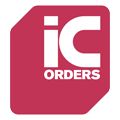In the realm of electronics, passive devices play a crucial role. These components, unlike their active counterparts, do not require an external power source to operate. Instead, they work solely on the energy supplied by the circuit they are connected to. This article delves into the fascinating world of passive devices, exploring their types, functions, and applications.
What are Passive Devices?
Passive devices are fundamental components in electronic circuits. They are incapable of amplifying power or controlling electron flow, hence the term ‘passive’. These devices can store or dissipate energy but cannot generate it. They include resistors, capacitors, and inductors, each with its unique function and application.
The operation of passive devices is governed by passive laws, namely Ohm’s law and Kirchhoff’s laws. These laws describe the relationship between voltage, current, and resistance in a circuit, and the conservation of energy and charge.
Types of Passive Devices
Resistors
Resistors are perhaps the most common type of passive devices. They resist the flow of current, hence their name. The resistance offered by a resistor is measured in Ohms (Ω). Resistors are used in a variety of applications, including current limiting, voltage division, heat generation, and signal damping.
There are several types of resistors, including fixed resistors, variable resistors, and thermistors. Each type has its unique characteristics and applications, making resistors a versatile component in electronic circuits.
Capacitors
Capacitors are passive devices that store energy in an electric field. They are used in electronic circuits for a variety of purposes, including filtering, energy storage, and signal coupling. The capacitance of a capacitor, measured in Farads (F), determines its ability to store charge.
There are many types of capacitors, including ceramic capacitors, electrolytic capacitors, and supercapacitors. Each type has its unique properties and applications, making capacitors an essential component in many electronic devices.
Inductors
Inductors are passive devices that store energy in a magnetic field. They are used in electronic circuits for various purposes, including filtering, energy storage, and signal coupling. The inductance of an inductor, measured in Henrys (H), determines its ability to store energy.
There are several types of inductors, including air-core inductors, iron-core inductors, and ferrite-core inductors. Each type has its unique properties and applications, making inductors a vital component in many electronic devices.
Applications of Passive Devices
Passive devices are used in virtually every electronic device. They are essential for controlling the flow of electricity and for storing and releasing energy when needed. Some of the most common applications of passive devices include power supplies, signal filters, and oscillators.
Power supplies often use capacitors to smooth out fluctuations in the output voltage. Signal filters use a combination of resistors, capacitors, and inductors to remove unwanted frequencies from a signal. Oscillators use passive devices to generate a periodic signal of a specific frequency.
Conclusion
Passive devices are the building blocks of electronic circuits. They play a crucial role in controlling the flow of electricity and storing and releasing energy. Understanding how these devices work and how to use them effectively is essential for anyone interested in electronics.
Whether you’re a hobbyist building your first circuit or an experienced engineer designing complex electronic systems, passive devices are tools you’ll use every day. So, the next time you pick up a resistor, capacitor, or inductor, remember the crucial role these passive devices play in the world of electronics.
As you continue to explore the essential role of passive devices in your electronic projects, remember that IC Orders is here to support your needs. With over 12 years of experience in the electronic component market, we understand the intricacies of sourcing the right components. Our expertise as an independent distributor means we’re well-equipped to help you find the exact part numbers you need to complete your Bill of Materials. Don’t let the search for high-quality passive devices slow down your progress. Contact Us for A Quote Today and let IC Orders be the solution to your electronic component needs.
